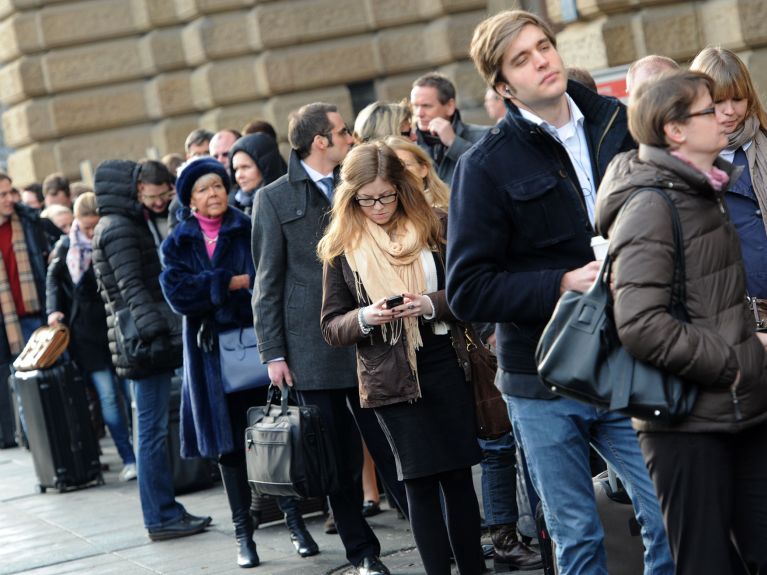Eager handshakes and chaotic queues: On German manners
When in Rome, do as the Romans do. But in Germany? After decades of living in the country, DW's Louisa Schaefer, from the US, is still baffled at times when in comes to national etiquette norms.

Despite residing in Germany for nearly 30 years, there are still some things I cannot wrap my mind around. I may have married a German, pay German taxes, and have German(-American) children, but I guess my US mentality still shines through.
Like when it comes to personal space. I'll be standing in the supermarket, in front of a shelf full of products, deliberating over the selection, and inevitably a hand will slip itself in front of my face and grab an item from the row. Many Germans seem to not have any qualms about this at all, but it still takes me aback sometimes.
Thinking to myself: "That's just so rude!" I'll turn to the person, wanting to swat their hand, stare them down and ask: "Didn't your parents teach you any manners?!" But then I bite my tongue because to say that would be, well, just plain rude.
Not so great line-makers
Or that Germans are, I hate to say, sometimes challenged by the notion of forming a line. It's like their minds — as a nation otherwise so good at engineering — are sometimes not equipped for this delicate configuration, this concept of placing your body behind that of the person who was there before you, with each having to wait their own turn. Mind you, they will form a line if there are ropes up, clearly demarcating the boundaries.
But, get them in a chaotic crowd where this is not laid out, say, at a Bratwurst stand at a boisterous outdoor street event where everyone is really hungry, and it's every man or woman for themselves.
I have stood at such a place often enough, patiently expecting for it to be my turn, and I have had countless Germans come next to me and place their order, pretending that I wasn't there before them if the server was busy with someone else and didn't notice.
I've learned to speak up, nay, shout at times: "But it's my turn!" — yet this prompts a feeling of being like a whiny child demanding justice. Having to sometimes elbow one's way ahead seems like a sport at times, being both irksome and simultaneously comic.
Welcome honesty?
Also, Germans can be some of the most direct people I know. They'll often tell you exactly what they're thinking, without many of the — equally irksome — niceties many native English speakers will use to pad a statement.
In addition, do not expect to be asked a second and certainly not a third time if you would like another piece of cake at a birthday party. I was taught to initially turn the offer down, and only when prompted with the host saying "You're sure?" that you accept. No, a German will usually take you by your word, which can often be a huge relief.
When in doubt, shake hands
Of course, I'm making massive generalizations. I have many good friends and acquaintances who can prove the above otherwise.
But, since generalizations are inevitable in our "Meet the Germans" series, here's another one to go: Germans are champions at handshaking. They'll do it at nearly every occasion you can think of: when meeting someone for the first time, of course, but also, when wishing someone "happy birthday." And, apparently, when they are unsure what else to do.
I was amused to observe my little three-year-old German niece the other day. After playing with my 10-year-old twins, it was time to say goodbye. She had played with my daughter amicably for several hours, so she naturally went up to my daughter and gave her a warm hug. But, uncertain what to do with my son (hug him or no?, I could see written on her face), she stuck out her tiny hand and gave him a formal handshake. It made me laugh, because it was cute, but it also made me think: "That's so German!"

